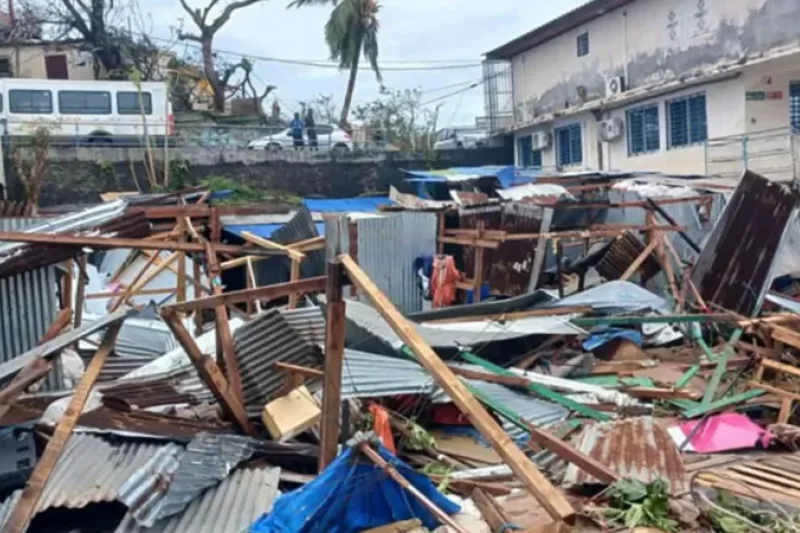Mayotte: 'It Feels Like Nuclear War Aftermath' after Cyclone, Residents Say
Residents of Mayotte have spoken of "apocalyptic scenes" caused by the worst storm in 90 years to hit the French Indian Ocean territory.
Cyclone Chido brought wind speeds of more than 225km/h (140mph), flattening areas where the poorest lived in sheet-metal roof shacks.
"We've had no water for three days now," said one resident of the capital city Mamoudzou. "Some of my neighbours are hungry and thirsty," another one said.
Rescue workers, including reinforcements from France, are combing through the debris searching for survivors. Twenty people have been confirmed dead, but the local prefect said it could be thousands.
Francois-Xavier Bieuville, the island's prefect, told local media the death toll could rise significantly once the damage was fully assessed. He warned it would "definitely be several hundred" and could reach the thousands.
Mayotte's impoverished communities, including undocumented migrants who have travelled to the French territory in an effort to claim asylum, are thought to have been particularly hard hit due to the vulnerable nature of their housing.
The Muslim tradition of burying the dead within 24 hours also meant documenting the number of those who have perished was more difficult, the prefect said.
In addition to aid, 110 French soldiers have arrived to help with the rescue, with another 160 on the way. Some 800 others from the ranks of volunteers helping during emergencies were also being sent to join local police units.
After arriving in Mayotte, French Interior Minister Bruno Retailleau said "days and days" would be needed to ascertain human losses.
The relief operation is being co-ordinated from Reunion - another French overseas territory.
French Red Cross spokesman Eric Sam Vah told the BBC the situation was "chaotic".
He said the organisation had been able to reach only 20 out of 200 Red Cross volunteers in Mayotte and echoed fears about the overall number of deaths.
"The totality of the slums have been totally destroyed, we haven't received any reports of displaced people, so the reality could be terrible in the coming days," the spokesman told BBC Radio 4's Today programme.
France colonised Mayotte in 1841 - and by the turn of the 20th Century added the three main islands that constitute the Comoros archipelago to its overseas territories.
The Comoros voted to become independent in 1974 but Mayotte decided to remain part of France.
The island's population is heavily dependent on French financial aid and has long struggled with poverty, unemployment and political instability.
About 75% of the population live below the national poverty line and unemployment hovers at around one in three.
Cyclone Chido also made landfall in Mozambique, where it brought flash flooding, uprooted trees and damaged buildings about 25 miles (40km) south of the northern city of Pemba. Three deaths have been reported.
The cyclone caused structural damage and power outages in the northern coastal provinces of Nampula and Cabo Delgado on Saturday morning, local authorities reported.
Guy Taylor, a spokesperson for aid agency Unicef in Mozambique, said "we were hit very hard in the early hours of this morning".
"Many houses were destroyed or seriously damaged, and healthcare facilities and schools are out of action," he added.
Mr Taylor said Unicef was concerned about "loss of access to critical services", including medical treatment, clean water and sanitation, and also "the spread of diseases like cholera and malaria".
(Source: BBC)













